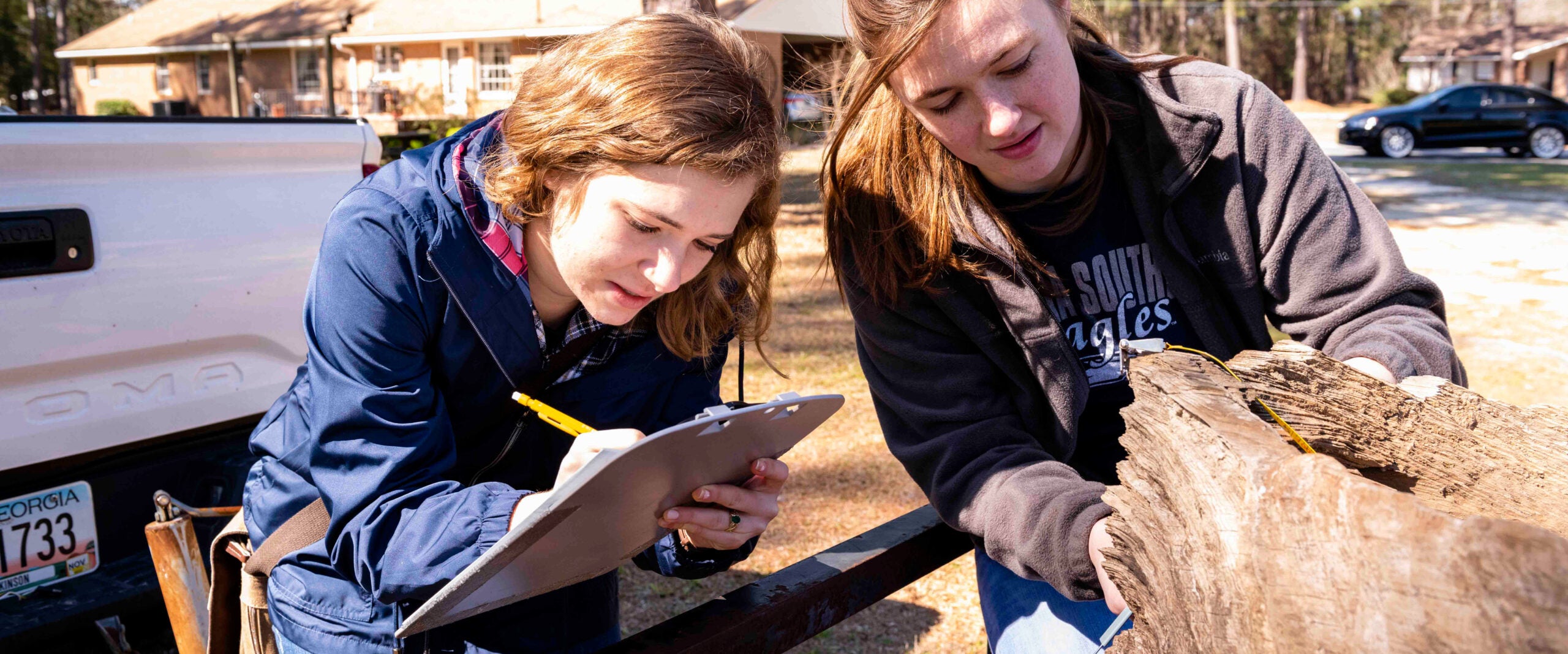Elevate your musical expertise in a collaborative learning environment where you can thrive under the guidance of accomplished faculty mentors while engaging with a supportive community of peers. With flexible evening scheduling for most concentration areas, you can tailor your studies to fit your lifestyle while preparing for a successful career in the music profession, both locally and nationally.
Locations
- Statesboro Campus
Why Get your Master of Music at Georgia Southern?
GS offers an unparalleled opportunity to refine your musical expertise while working closely with distinguished faculty mentors.
Our Master’s in Music program emphasizes personalized attention and mentorship in a collaborative environment, allowing you to develop advanced skills in areas such as Composition, Conducting, Music Education, Music Technology, and Performance. With our small program size, you will receive tailored guidance that enhances your creative and scholarly pursuits, whether you aim to perform at a higher level, contribute to academic research, or prepare for doctoral studies. You’ll also benefit from competitive Graduate Assistantships that allow you to gain valuable teaching and research experience while helping to shape the next generation of musicians. Our graduates have a strong track record of success, transitioning into impactful careers in education, performance, and beyond.
Choosing Georgia Southern means investing in a future where your passion for music can flourish in a supportive and enriching environment.
Ready to Apply?
What Can You Do With a MM in Music?
A Master’s in Music from Georgia Southern University opens the door to rewarding career paths within the music industry.
You’ll be well-prepared to excel as skilled performers, composers, educators, and music producers, leveraging their advanced artistic and technical expertise gained through specialized concentration areas such as Composition, Conducting, Music Education, Music Technology, and Performance. Whether you aspire to be a school teacher, a sound technician, or a music producer, the program equips you with the critical skills and hands-on experience necessary to thrive in diverse roles, including choreographer, event manager, and radio broadcaster.
With your Master’s Degree in Music, you can make a significant impact in education, performance, and beyond, paving the way for professional advancement or further academic pursuits in a doctoral program.
Where our graduates work:
- Education
- Churches
- Cultural Centers
- Music Production
- Film and Television
- Media and Journalism
What our graduates do:
- Arts/Music Management
- K-12 Band Teacher
- Composer/Conductor
- Choral Director
- Concert Promoter
- Producer/Mixer
- Music Writer
What You’ll Learn
Immerse yourself in an advanced curriculum designed to elevate your musical expertise and prepare you for a variety of professional paths.
Depending on your concentration—whether it be Composition, Conducting, Music Education, Music Technology, or Performance—you’ll gain specialized knowledge and skills that reflect the latest industry trends and pedagogical practices. You’ll explore music theory and history, refine your artistic voice, and develop practical competencies through hands-on experiences, including conducting diverse ensembles, composing across various styles, or mastering your primary instrument.
Our program emphasizes both theoretical foundations and practical application, equipping you with the confidence and competence to excel in your chosen field, be it as an educator, performer, composer, or music technologist. As you present your culminating recital or final project, you will showcase your growth and readiness to make a significant impact in the music industry.
Concentrations
Tailor your Master’s Degree in Music to your passions with a concentration. From Composition to Conducting, from Music Technology to Performance, find your music focus with GS.
Composition Concentration
The Composition concentration develops students’ advanced compositional skills and knowledge. You’ll learn about music theory, history, and technology, including digital audio, sound design, and interactive media. You’ll also have opportunities to compose music in various styles and genres. The program focuses on refining your compositional techniques, exploring different musical languages, and developing your creative voice. This will prepare you for a successful career as a composer in various fields, such as film, game music, or concert music.
See Composition CurriculumConducting Concentration
The Conducting concentration equips you with the advanced skills and knowledge necessary for a successful career in conducting. The curriculum includes foundational courses in music theory, history, and conducting techniques, as well as specialized coursework in choral, wind ensemble, or orchestral conducting.
Through hands-on experience and rigorous training, you’ll develop the ability to lead diverse musical ensembles effectively. The program emphasizes practical skills, such as rehearsal techniques, score reading, and performance interpretation. You’ll also gain a deep understanding of music history and the cultural context in which music is created and performed.
See Conducting CurriculumMusic Education Concentration
The concentration in Music Education prepares students for successful careers as music educators. The curriculum combines rigorous coursework in music theory, history, and pedagogy with practical experience in teaching and conducting. You will develop a deep understanding of music education principles, research methods, and effective teaching strategies.
The program emphasizes both theoretical knowledge and practical skills, equipping graduates with the tools they need to excel in a variety of music education settings. Whether you aspire to teach in a classroom, lead a choir, or conduct a band, this program will provide you with the necessary skills and knowledge to make a meaningful impact on the lives of your students.
See Music Education CurriculumMusic Technology Concentration
The Music Technology concentration focuses on the intersection of music and technology, equipping students with the advanced technical skills and theoretical knowledge necessary for successful careers in the music industry. The program emphasizes practical applications of music technology, including digital audio production, sound design, and interactive media, but you’ll also get a solid foundation in music theory, history, and contemporary cultural contexts. The program prepares you for careers in music production, sound design, and other technology-related fields.
See Music Technology CurriculumPerformance Concentration
The concentration in Performance offers advanced training for aspiring professional musicians. The program emphasizes intensive study of your primary instrument or voice, focusing on technical proficiency, repertory development, and artistic interpretation. You’ll receive personalized guidance from experienced faculty members, who will help refine your technical skills and develop your artistic expression.
The program emphasizes both individual practice and ensemble performance, providing students with the experience they need to excel in a variety of musical settings. Whether you aspire to perform as a soloist, join a chamber ensemble, or play in a symphony orchestra, this program will provide you with the foundation for a fulfilling and successful career in music.
See Performance CurriculumBuild Your Experience
The Fred and Dinah Gretsch School of Music is committed to a strong outreach program that provides music education, cultural awareness, and musical opportunities to the local community and greater southeast Georgia region.
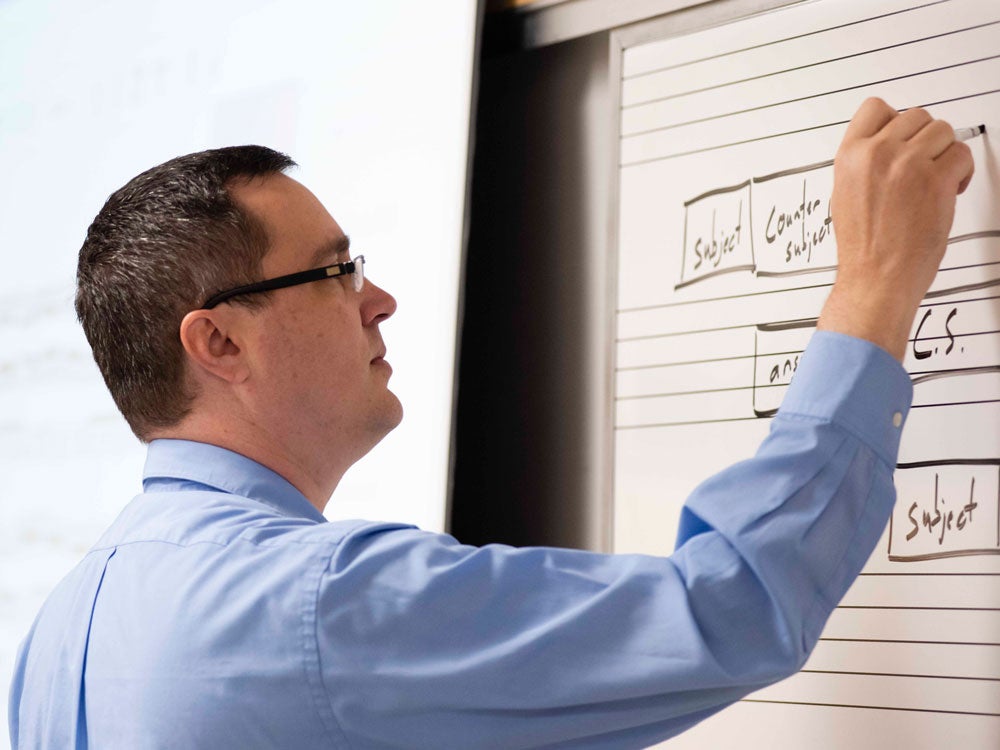
American Choral Directors Association (ACDA)
The ACDA Collegiate chapter provides professional and collegial contacts for choral music education students.
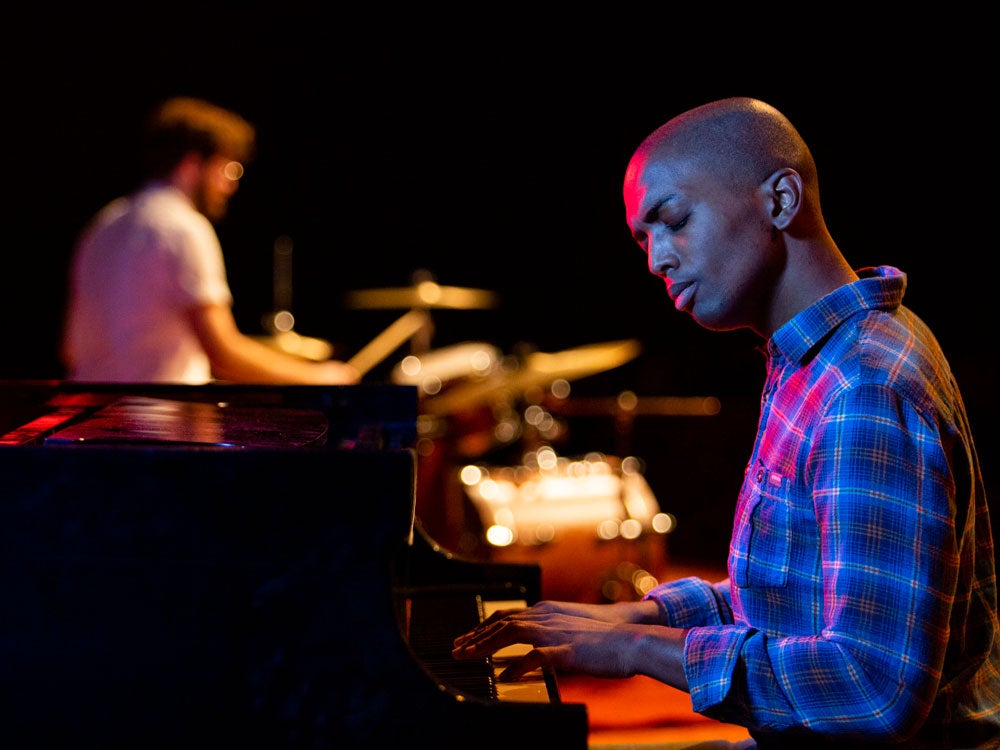
Kappa Kappa Psi
Kappa Kappa Psi is a fraternal organization that promotes the advancement of college and university bands through dedicated service and support to bands; comprehensive education; leadership opportunities; and recognition; for the benefit of its members and society. The Nu Kappa chapter was installed in 2014.
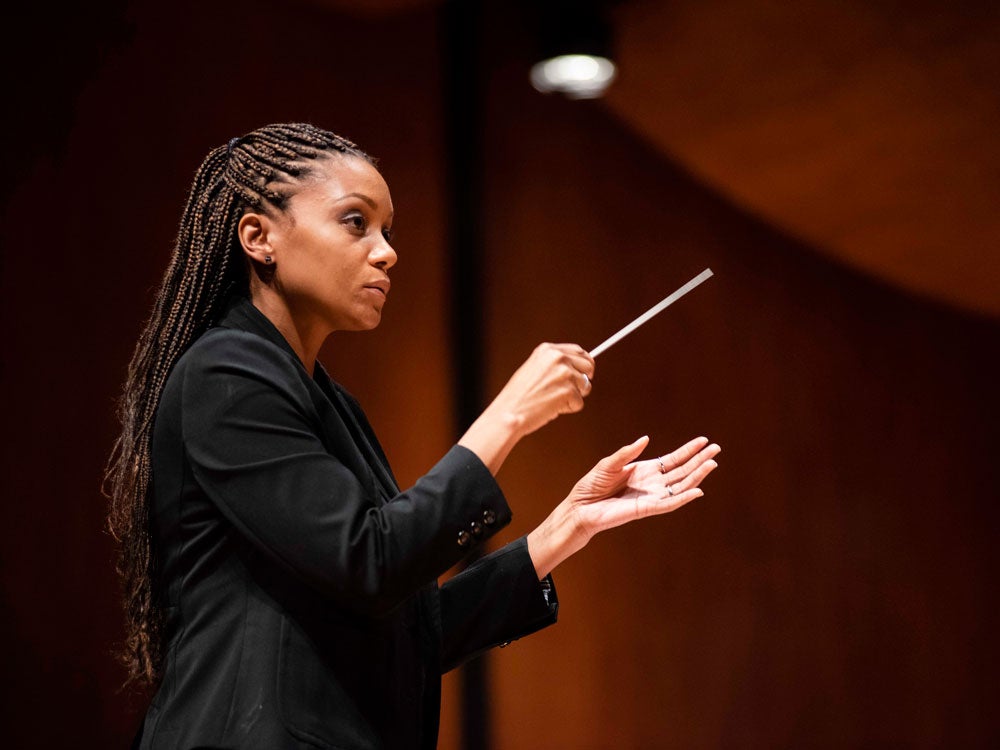
National Association for Music Education (NAfME) Collegiate Chapter
The mission of NAfME, the National Association for Music Education, is to advance music education by encouraging the study and making of music by all. NAfME has more than 75,000 members nationwide and serves students and teachers at all levels of music education. Music Education majors are expected to join NAfME for a small cost each year, and this membership includes a joint membership with Georgia Music Educators Association (GMEA). As members, students receive the professional publications Georgia Music News, Teaching Music, and Music Educators Journal. They also attend the annual GMEA Conference held in Savannah, for a significantly reduced conference fee. The Collegiate Chapter participates in several community outreach events each year, including Instrument Petting Zoos and working with local school music programs.
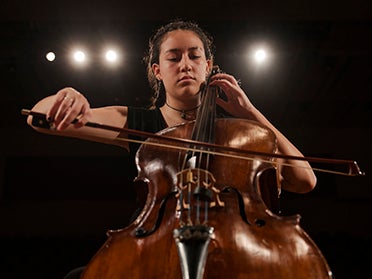
Phi Mu Alpha Sinfonia
Phi Mu Alpha Sinfonia is a national fraternal society founded in 1898. The fraternity works to promote “the mutual welfare and brotherhood of musical students” and “the advancement of music in America.” The Zeta Omicron chapter is the oldest Greek letter organization at Georgia Southern, having been chartered in 1953.
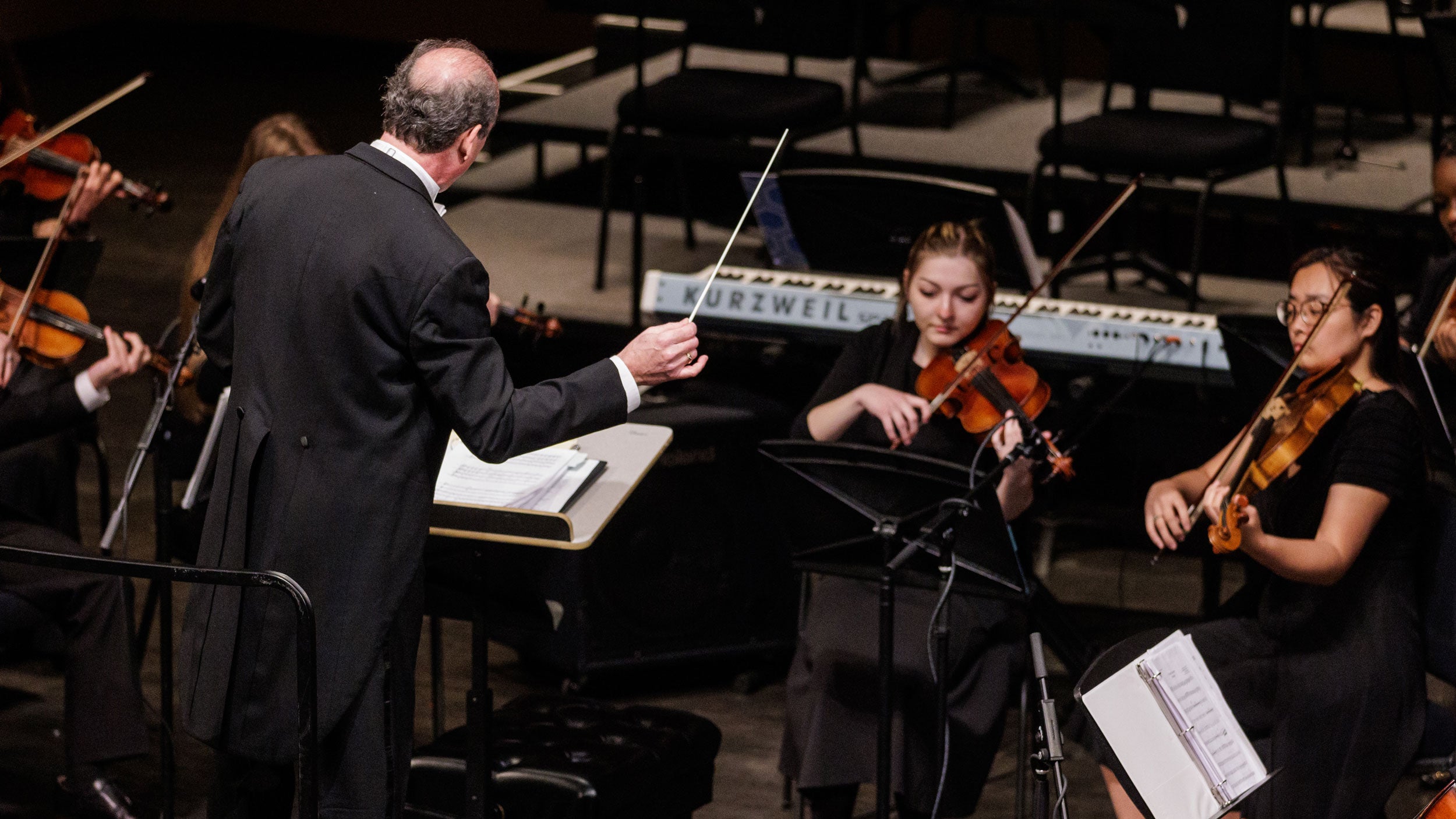
Pi Kappa Lambda
This national honor society in music is open to junior, senior, and graduate music majors. In addition to scholarship, all students who are elected to the society must be considered to have outstanding musicianship. The Iota Pi chapter was inaugurated in 2005.
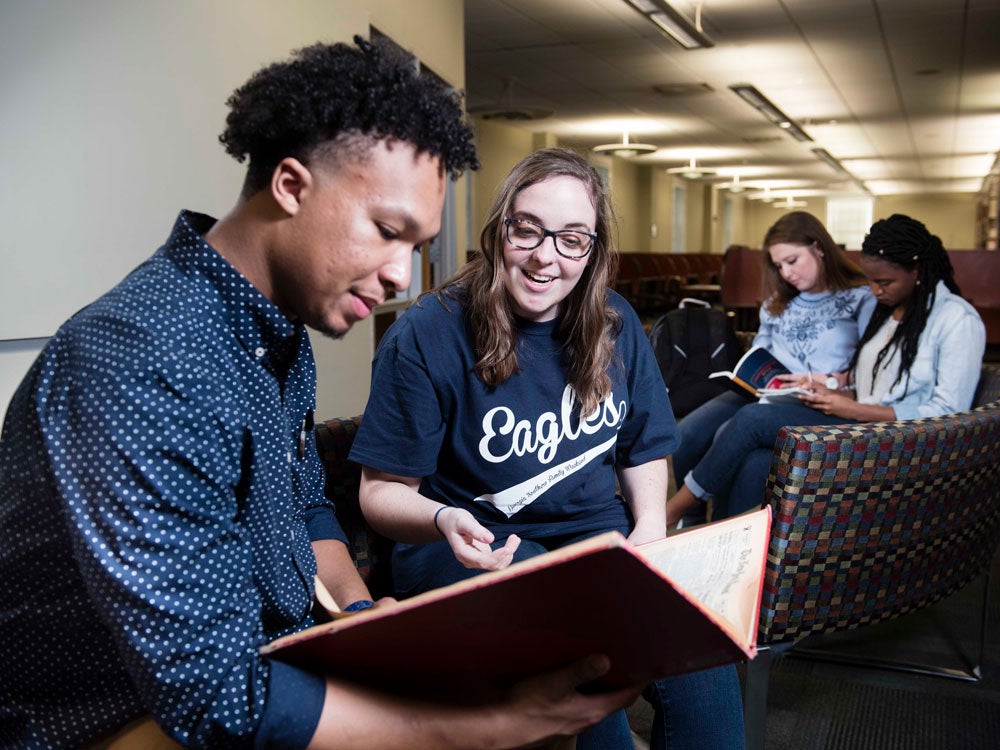
Sigma Alpha Iota
Sigma Alpha Iota is an international music fraternity for women. Founded in 1903, SAI and its members are proud of their strong heritage, supporting the art of music. The Gamma Theta chapter was installed in 1958.
Learn More
Take Action
Follow these steps to complete the Georgia Southern application:
- Create an application account.
- Complete our online application using the PIN you received after creating your application account.
- Once complete, pay the $30 application fee or upload a valid fee waiver. Previous Georgia Southern applicants and dual enrollment students do not need to pay the fee.
You can check your application status at My.GeorgiaSouthern.edu/admissions three days after completing your application. This page contains live information about your admission status, including a checklist of missing documents we need to make a decision.
Apply to the Master's program Transfer to Georgia SouthernRegular Admission
- A completed bachelor’s degree in music or equivalent.
- A minimum 3.0 (4.0 scale) cumulative grade point average in undergraduate work.
- Two letters of recommendation by individuals who are familiar with the applicant’s potential for successful graduate study.
- A statement of purpose explaining why you want to complete this degree
- A current resume
- Requirements pertinent to the student’s intended area of concentration:
- Composition: a link to your composition portfolio or electronic submission of individual score files to the Director of Graduate Studies in Music.
- Conducting: a link to an audition video or a live audition please see the audition process and requirements for specific performance areas and a satisfactory agreement with the conducting faculty committee about how the practical conducting requirement will be managed. Generally, full-time students will be assigned to work with various University ensembles; other students may request permission to work with an ensemble (such as a school band or choir) with which they are currently involved.
- Music Education: a copy of your teaching certification document or teaching license of your Certification in Music (Georgia Level 4 or its equivalent), or documents showing that you are eligible for certification or licensure.
- Music Technology: a hyperlink to your portfolio showing your best work in music technology.
- Performance: a live audition or a link to a video audition (please see the audition process and requirements for specific performance areas at http://cah.georgiasouthern.edu/music/applications/graduate-application/.
- International students whose first language is not English and whose undergraduate degree was not completed at an institution where the primary language of instruction was English must have official TOEFL or IELTS scores submitted directly from the Testing Service to Georgia Southern University. For consideration to be admitted to the M.M. program, a minimum TOEFL score of 80, with subscores of at least 20 in both speaking and writing is required, or an IELTS scores of at least 6.5, with no single subscore below 6.0. International students who meet all other admission requirements but who are deficient in English will normally be conditionally admitted. Conditionally admitted students must successfully complete the highest level in the university’s English Language Program (ELP) and achieve a minimum score of 80 on the ELP’s standardized English proficiency exam prior to matriculating into the M.M. program and taking any music classes. ESL exit level for these students is a MTLEP score of 255, with no subsection lower than 80.
Provisional Admission
Students may be admitted, at the discretion of the graduate admissions committee, on a provisional basis if one or more of the requirements listed above are judged to be marginal. Specific provisions for exiting provisional status will be set in each case by the admissions committee and must be satisfied before proceeding past the first 12 credits of course work.
Departmental Entrance Examination
All students entering the program must pass a Departmental Entrance Examination to demonstrate acceptable undergraduate-level proficiency in music theory, analysis, and history. This examination is administered online prior to the start of the student’s first semester, and details about the contents of the test and its administration will be sent to each student after they have been admitted. Students who do not pass the examination will be required to take a review course and may not take Advanced Analytical Techniques (MUSC 7331) until they have passed the review course. Students who cannot pass the review course will be dropped from the program.
All M.M. candidates are required to pass a comprehensive oral examination, covering coursework and their recital or final project.
Related Programs
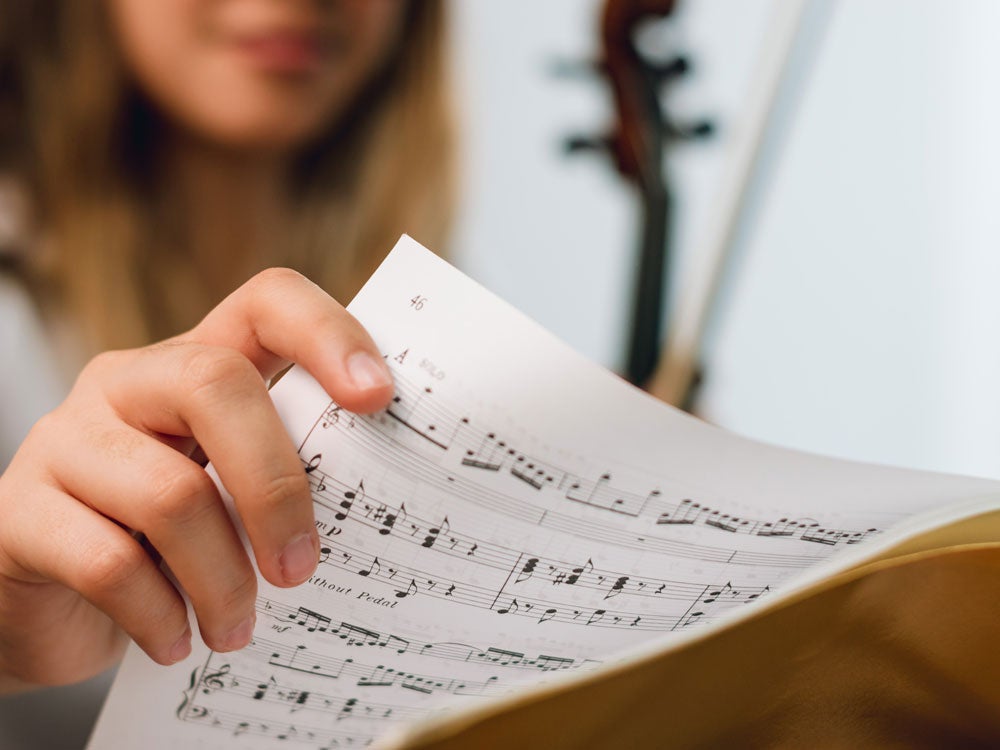
Take the Next Step
Ready to Elevate your musical expertise in a collaborative learning environment? Learn more about earning your Master of Music at Georgia Southern University.
Contact Us
Fred and Dinah Gretsch School of Music
P.O. Box 8052
Statesboro, GA 30460
music@georgiasouthern.edu
Dr. Gregory Harwood
gharwood@georgiasouthern.edu
912-478-5813


